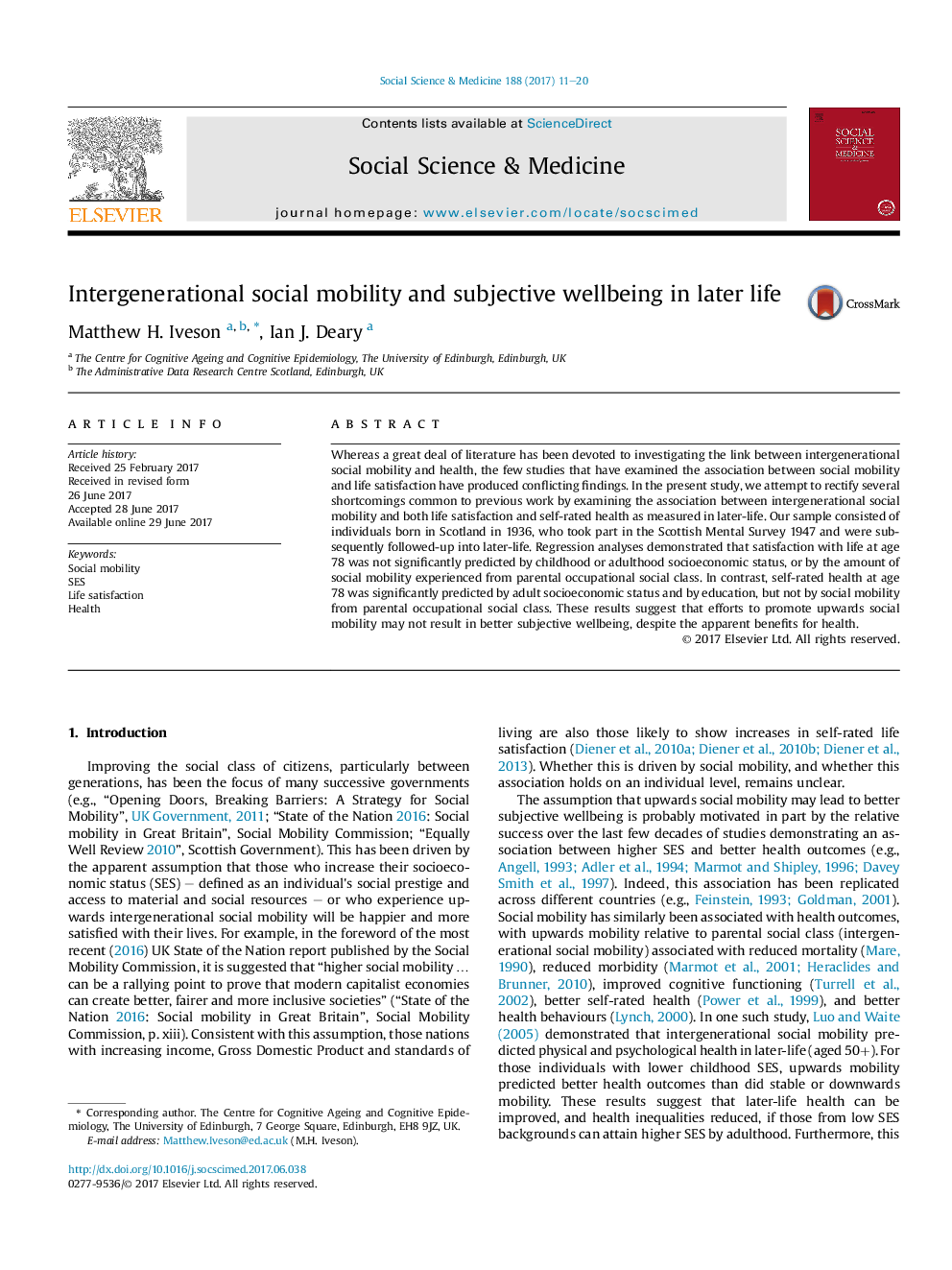ترجمه فارسی عنوان مقاله
تحرک اجتماعی بین نسلی و رفاه ذهنی در زندگی بعد
عنوان انگلیسی
Intergenerational social mobility and subjective wellbeing in later life
| کد مقاله | سال انتشار | تعداد صفحات مقاله انگلیسی |
|---|---|---|
| 127562 | 2017 | 10 صفحه PDF |
منبع

Publisher : Elsevier - Science Direct (الزویر - ساینس دایرکت)
Journal : Social Science & Medicine, Volume 188, September 2017, Pages 11-20
ترجمه چکیده
در حالی که مقالات زیادی به بررسی رابطه بین تحرک اجتماعی بین نسل ها و سلامت اختصاص یافته اند، مطالعات اندکی که ارتباط بین تحرک اجتماعی و رضایت از زندگی را مورد بررسی قرار داده اند، یافته های متناقض را ایجاد کرده اند. در مطالعه حاضر، ما تلاش می کنیم نقاط ضعف مختلفی را که در مورد کار قبلی مورد بررسی قرار گرفته اند، بررسی کنیم، ارتباط بین تحرک اجتماعی بین نسل ها و رضایت از زندگی و سلامت خود ارزیابی در بعد زندگی. نمونه ما شامل افرادی بود که در اسکاتلند در سال 1936 متولد شده بودند، که در بررسی روحی روانی اسکاتلند 1947 شرکت کردند و بعدا به زندگی بعدی پیوستند. تجزیه و تحلیل رگرسیون نشان داد که رضایت از زندگی در سن 78 سالگی به طور قابل ملاحظه ای از وضعیت اجتماعی و اقتصادی دوران کودکی یا نوجوانی یا میزان تحرک اجتماعی که از طبقه اجتماعی حرفه ای والدین حاصل شده بود پیش بینی نمی شد. در مقابل، وضعیت سلامتی خود ارزیابی در سن 78 سالگی به طور قابل توجهی با وضعیت اجتماعی و اقتصادی بزرگسالان و با آموزش، اما نه با تحرک اجتماعی از طبقه اجتماعی شغلی والدین پیش بینی شد. این نتایج نشان می دهد که تلاش برای ترویج تحرک اجتماعی بالا نمی تواند منجر به بهبود وضعیت ذهنی بهتر شود، به رغم منافع ظاهری برای سلامتی.

